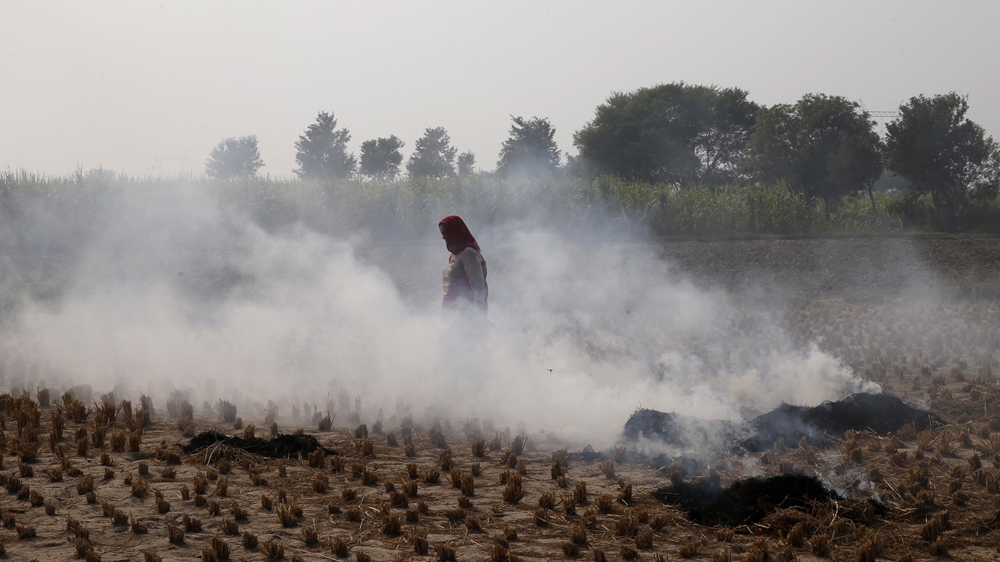India’s air quality plummets to worst possible category
India‘s air quality has plummeted to the worst possible category, the government’s Central Pollution Control Board said on Friday.
The level of PM2.5, tiny particulate matter that can dangerously clog lungs, read 187, more than six times higher than the World Health Organization considers safe.
The board warned people to avoid jogging outdoors in the early morning and after sunset, and to keep medicine nearby if asthmatic. It also advised people to wear masks as a precaution.
The most recent air pollution data from the World Health Organization released in March this year gave India the dubious distinction of having the world’s ten most polluted cities.
India’s capital, which once was the world’s most polluted city, ranks sixth. But experts say the data does not suggest that New Delhi’s air quality has improved, but rather that more Indian cities’ air has worsened.
A Supreme Court-appointed Environment Pollution Authority warned on Thursday that air pollution in the capital region is likely to peak from November 1 as toxic fumes from stubble burning in agriculture farms in neighbouring northern states of Haryana and Punjab could gush in because of a change in wind direction.
“Weather conditions are projected to become adverse from November 1,” warned the India Meteorological Department.
Farmers have been ignoring the government warnings of a penalty saying they can’t afford to buy harvesting machines costing up to 50,000 rupees ($675) apiece.
 |
| A farmer walks through smoke caused by farming waste set on fire at Palwal, in the state of Haryana, [File:Saurabh Das/AP Photo] |
Another concern is the upcoming Diwali festival, late last year Delhi was covered in a toxic smog among several reasons due to the countless firecrackers left off for the festival, forcing authorities to shut power stations, ban construction and clamp down on garbage burning.
“We are heading into a deadly cocktail with Diwali and peak stubble burning time,” an official said on Thursday.
Some activists urged India’s top court to order a complete ban on bursting firecrackers this year as Diwali festival falls on November 7. The court, however, only imposed certain conditions for the sale and use of firecrackers.
Among those it ordered that firecrackers could be burst between 8 pm and 10 pm (local time) on the festival night on November 7 and could not be sold online. It also said that only less polluting firecrackers could be manufactured and sold.
Authorities also are trying to lower the amount of dust in the air by sprinkling water in many neighbourhoods and ordering builders to cover construction sites.
 |
| An Indian worker makes fire-crackers for the upcoming Hindu festival Diwali at a factory on the outskirts of Ahmadabad, India [Ajit Solanki/AP Photo] |



